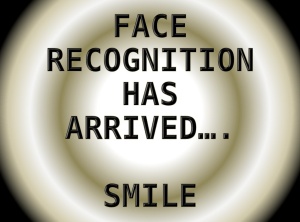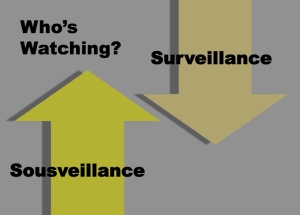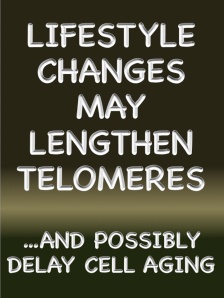In this interview, ex imam Ahmed Akkari, one of the main denouncing voices during the 2005 crisis about Denmark Mohammed cartoons, explains how study of enlightenment thinkers lead to reconsidering his stances on freedom of expression and secular societies.
Indeed. We've spoken before of the evidence shown by Harvard Prof Steven Pinker that percapita violence rates have been plummeting, (on average) since 1945. Now… here is yet more news that shatters pat nostrums of both the right and the left. In April, the Development Committee of the World Bank set the goal of ending extreme poverty by the year 2030. Sound naive and delusional? Jeffrey Sachs in the NY Times shows a strong case that this goal can (roughly) be met and indeed is being met.
 "According to the World Bank’s scorecard, the proportion of households in developing countries below the extreme-poverty line (now measured as $1.25 per person per day at international prices) has declined sharply, from 52 percent in 1980, to 43 percent in 1990, 34 percent in 1999, and 21 percent in 2010. Even sub-Saharan Africa, the region with the most recalcitrant poverty, is finally experiencing a notable decline, from 58 percent in 1999 to 49 percent in 2010."
"According to the World Bank’s scorecard, the proportion of households in developing countries below the extreme-poverty line (now measured as $1.25 per person per day at international prices) has declined sharply, from 52 percent in 1980, to 43 percent in 1990, 34 percent in 1999, and 21 percent in 2010. Even sub-Saharan Africa, the region with the most recalcitrant poverty, is finally experiencing a notable decline, from 58 percent in 1999 to 49 percent in 2010."
Sachs shows that "…anti-market sentiment is no friend of poverty reduction. But neither is free-market fundamentalism. Economic growth and poverty reduction can’t be achieved by free markets alone. Disease control, public education, the promotion of new science and technology, and protection of the natural environment are public functions that must align with private market forces." In other words, the much-maligned Mixed-Approach that we inherited from the Greatest Generation turns out to have been exactly right, all along. Read the article by Sachs.
It supplements Steven Pinker's work and shows what we might still accomplish, if vigorous, pragmatic, non-dogmatic ambition and goodwill take hold ... if we thwart the grouches and cynics whose dyspeptic and demoralizing grumbles make them by far the worst enemies of humanity and Planet Earth.
It supplements Steven Pinker's work and shows what we might still accomplish, if vigorous, pragmatic, non-dogmatic ambition and goodwill take hold ... if we thwart the grouches and cynics whose dyspeptic and demoralizing grumbles make them by far the worst enemies of humanity and Planet Earth.
As President John F. Kennedy said: “The problems of the world cannot possibly be solved by skeptics or cynics, whose horizons are limited by the obvious realities. We need men who can dream of things that never were and ask, why not?"
== And even rougher (deserved) treatment for cynics ==
The always acerbic, clever and sometimes on-target David Wong uses his modernized CRACKED site to deliver some truly eye-opening rants, slapping the reader with wake-up! calls. In this case, he provides: 7 Reasons the World Looks Worse Than It Really Is. Some of them even ones I haven't mentioned before.
For example: "You can hate the greed and cutthroat competition of capitalism, but before that it was the much-worse feudalism. You can say that communism was never given a chance because countries like Russia and China were taken over by crazy assholes, but you have to understand that susceptibility to crazy assholes will always be one of the fundamental weaknesses of that system. You have to give credit to the people who worked hard to make things less bad today."
 And: "This is why I've grown to find cynicism so frustrating -- cynicism doesn't cause inaction. The desire for inaction causes cynicism. And so you fight to defend your cynicism tooth and nail."
And: "This is why I've grown to find cynicism so frustrating -- cynicism doesn't cause inaction. The desire for inaction causes cynicism. And so you fight to defend your cynicism tooth and nail."
Alas he ignores the MAIN reasons for nostalgic cynicism!
(1) The alluring romanticism of look-backward worldviews which dominated nearly all human societies, perceiving some lost golden age in the past, instead of a human-built one in our future.
(2) The tendency of the political right to deny that human improvability is possible and urgently necessary and hence worth paying taxes to pursue.
(3) The tendency on the political left to demand lots of (necessary) improvement, but only with chiding, never encouragement, angrily denouncing any admission that lots of progress has already happened, because that admission might "reduce the perceived urgency to improve and do more reform." (A presumption that is as loony as anything at Fox.
But heck, while you're at it, check out The 5 Ugly Lessons Hiding in Every Superhero Movie.
This is a frequent theme of mine. One that I will elaborate more upon... next posting.
== Poking at sacred cows ==
This riff attempts to make excuses for Robert E. Lee's loss at Gettysburg, on cartographic grounds: Lee's ill-fated combat decisions and ultimate defeat likely stemmed from bad reconnaissance reports, his forces spread too thinly across 7 miles, and an inability to see the more compact and elevated Union forces, according to geographers and cartographers who synthesized old maps, text and data into a digital model of the three-day Pennsylvania battle in 1863. "We know that Confederate General Robert E. Lee was virtually blind at Gettysburg," Anne Kelly Knowles, a geography professor at Middlebury College, wrote in the article accompanying the interactive map on smithsonianmag.com.
There is a problem with that excuse… it is just as easily applicable to almost all of the Union commanders Lee defeated during the previous two years. The problem was a general one… in several senses of that word. Hence, applying it to make excuses just for Lee is disingenuous. In fact, Lee collapsed every time he tried to take on the vastly more difficult job of strategic attack that his much derided opponents faced. Generals McDowell, McClellan, Rosecrans, Halleck and so on, had to maneuver vast, invading armies and their supply chains through poorly mapped territory with almost nonexistent communications. Inevitably, one wing or another became exposed for an aggressive defender to pounce-upon.
Lee's admitted brilliance was less a factor than historical circumstance and the transient effects of technology in the 1860s. These combined to offer huge advantages to agile and aggressive defense, Lee's specialty as he recklessly chewed at the flanks of his lumbering opponents. But at Antietem and Gettysburg, he was the one attempting to coordinate a strategic advance. And in those cases, Lee's approach -- charge at anything you see that's blue -- was more crudely ill-conceived and reliant on luck than the advances of Rosecrans, Grant, Sherman, or even Halleck and Pope. Indeed, he was spectacularly fortunate, in both cases, that he did not face an aggressive Lee-type on the Union side. In fact, his lucky stars saved him at both battles.
== TWEETABLES! ==
Some wisdom on reality vs. perception: http://www.viruscomix.com/page528.html
An anthem for geek girls! http://www.dvice.com/2013-7-26/video-day-anthem-geek-girls
DARPA's next Robotics Challenge. Challengers will deal with a complex search-and-rescue scenario. http://www.theroboticschallenge.org/Default.aspx
A fascinating look at how dolphins react to mirrors! http://bit.ly/15C1O8q
Okay this is cool music appreciation: 90 theramins doing Beethoven's 9th. http://bit.ly/1bj7N4g
Sweet and moving, from SMBC. http://www.smbc-comics.com/?id=3088#comic
And this lovely lecture-tribute-perfomance to Gershwin. http://www.youtube.com/embed/w-nznS0FXKc?feature=player_detailpage
From The Onion: a naive and irresponsible father refuses to create castle-bunkers to protect his family against the looming apocalypse! http://onion.com/1fS0nVb
Kewl chance to put your life -- and time -- in perspective. http://bit.ly/1hbR7t2
And talk about perspective! A camera strapped to an eagle's back. http://bit.ly/19NT5vB
How we survived the sixties I'll never know. It is the biggest evidence for alien or heavenly intervention. http://n.pr/1hbQVtA
== Recommended ==
 UCLA Prof Gregory Stock was one of the earliest of the modern wave of scientists promoting what became known as "transhumanism" or improvement of the human species. Now he has come out with an interesting new "Book of Questions" -- which is what the title suggests, a series of posers, puzzlers, and cringe-worthy shit-disturbers… the sort that you raise once-per-evening at a dinner party or discussion group or the work-lunch room, to get some lively passions raised.
UCLA Prof Gregory Stock was one of the earliest of the modern wave of scientists promoting what became known as "transhumanism" or improvement of the human species. Now he has come out with an interesting new "Book of Questions" -- which is what the title suggests, a series of posers, puzzlers, and cringe-worthy shit-disturbers… the sort that you raise once-per-evening at a dinner party or discussion group or the work-lunch room, to get some lively passions raised.
Sample some at thebookofquestions.com
== And … ==
Can you believe the web browser is 20 years old? Or that MOSAIC took the world by storm ONLY 20 years ago? Either way, it makes you blink, just to imagine the world of back-then. Have a look back via Frank Catalano's brilliant essay about the things we used to take for granted.
Finally - a teaser for folks in Arizona: How do we fit in a universe that's unveiling itself in confounding ways? Might we share the cosmos with other intelligent beings, or are we alone in the vastness of space? Could the universe be a Matrix-like simulation?
I’ll be giving the Shoemaker Memorial Lecture about "Humanity’s Place in a Very Strange Universe" at Arizona State University’s BEYOND Center for Fundamental Concepts in Science, in Tempe, on Oct. 1 at 7 pm. Free, and open to the public, with a book signing afterward. Click here to RSVP.
Next day I'll speak at ASU's Center for Science & Imagination: Science Fiction and the Future of Journalism at 1:45 pm; Sign up at EventBrite.



















